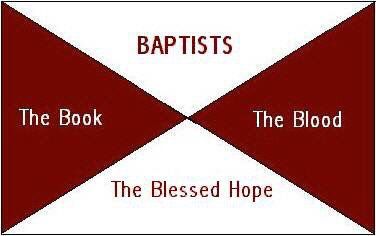“I grew up hearing Baptist. Baptist Born, Baptist Bred, and When I Die, I’m Baptist Dead.” This familiar saying, while humorous, encapsulates the cultural affinity many individuals have with their baptist upbringing. However, being Baptist is more than a tagline; it’s a commitment to certain principles rooted in the Word of God. This is not all inclusive this is just some of the reasons I am a baptist besides growing up in church. Growing up in a church is not reason itself to affiliate with a particular denomination. We must know for ourselves why we are of xyz church.
1. Regard for the Word of God:
Growing up Baptist often means instilling a deep respect for the Bible. This is not blind allegiance but a commitment to question everything in light of God’s Word. The Bible holds the highest authority, guiding not only individual lives but also the practices of the church, the family, and society. No compromise is allowed; Baptist beliefs emphasize the importance of adhering to biblical principles without error.
2. Independence of the Church:
Baptists hold a unique position in their ecclesiology, emphasizing the autonomy and self-governance of the local church. This independence extends to the church’s relationship with the government, society, and denominational structures. Independent Baptist Churches are highlighting the need to be under the influence of Jesus as the Head, not a man or denomination.
3. Importance of the Church:
Baptists recognize the significance of the church, not as an arbitrary gathering but as a divine institution built by Christ Himself. The scriptural promise that the gates of hell shall not prevail against it (Matthew 16:18) underscores the enduring nature of the Church. It is designed to bring glory to God throughout all ages (Ephesians 3:21) and is commanded to carry out the Great Commission (Matthew 28:18-19).
4. History of the Church:
Baptists have a unique historical narrative, distinguishing them from both Protestants and Catholics. The Baptist commitment to religious liberty has often led to persecution, with Baptists seeking freedom from both Catholic and Protestant authorities. Historical figures like John Clarke played instrumental roles in advocating for religious freedom, culminating in the establishment of the first Baptist church in America in Rhode Island.
5. Aligning with the New Testament Church:
A key tenet of Baptist beliefs is the alignment with the description of a New Testament church. Emphasizing Christ as the head (Colossians 1:18), equality among members (Matthew 23:10-12), salvation and baptism as prerequisites for membership (Acts 2:41-47), and recognition of only two ordinances (Baptism and the Lord’s Supper), Baptists closely adhere to the scriptural model of the church.
In conclusion, being Baptist is more than a cultural or familial association; it’s a commitment to biblical principles, independence, and historical resilience. Baptists strive to align themselves with the New Testament model of the church, recognizing the authority of the Word of God and holding steadfast in their faith despite historical challenges. As Baptists continue to uphold their distinctive beliefs, they contribute to the rich History of Christianity, rooted in unwavering faith and a commitment to the enduring truths found in God’s Word.

